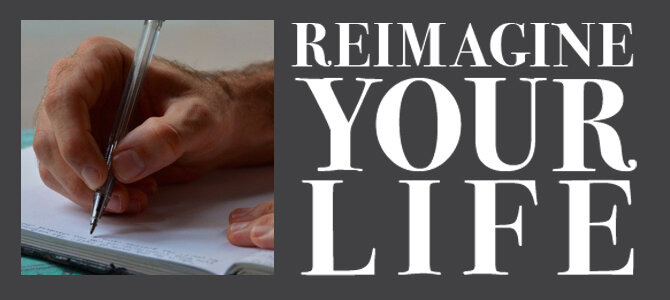The Power in Making a Fearless Moral Inventory
This is a series about getting your life back on track and achieving your goals.
I don't want to write this. I don't. Would you?I was suddenly active in recovery. Every day I went to an AA meeting. I made sure I never missed a day. Even if I had to attend a technology networking event in the evening, I'd find a 10 pm AA meeting somewhere.
I feared I would drink again.
I knew if I drank again, I would lose what was most important in my life—Kathy, the kids, and any chance of professional respect and advancement. In addition, I would lose me. I came to believe alcohol would own me and have its way with me. I wouldn't let it happen. So I went to meetings.These meetings were a mix of great and awful. Every day of the week meant a new location.
Monday was the basement meeting room in the Methodist church.
Tuesday was the Episcopal church.
Wednesday was some remote elementary school cafeteria.
Thursday was the 8111 Club, a location owned by AA members.
Friday night was the Catholic church community room.
Saturday morning was the Triangle Club, another AA member-owned location.
Sunday was the hardest day. That was the day I used to drink to quell the anxious anticipation of the week to come. Sunday was now the church basement in East Cobb.
Once a week I would attend the Friday 7 am men’s Bible study at the seafood restaurant. I looked forward to it. There was a lightness to these meetings. They were upbeat. They would talk about Jesus. They spoke of forgiveness, the love of God, grace, and new beginnings. They spoke on so many topics. Right living. God's plan for my life. Hope. Power. Submission. Freedom from sin and addiction. Relationships like friendship, marriage, family, children, community, church. An intimate relationship with God, my creator. It was all healthy, very healthy.
The AA meetings were darker.
Men and women would talk about their behavior. How alcohol added complexity to their lives. They would say things like, "You know you are an alcoholic when you fight rush hour traffic all the way home only to find there is no beer in the refrigerator, so you get into your car and head back out into the rush hour traffic to find beer." I would hear this, and I would nod my head thinking, Yes. That’s me.They would share how they mistreated their wife. Or a wife would talk about how she fought with her husband. How he always did the same thing that pissed her off. They shared stories of losing jobs, divorce, destroying other loving relationships. How they frustrated or mistreated their kids. These people, my new friends in these AA meetings, were sharing their most intimate thoughts and experiences. They called it their “stinkin thinkin." The more they talked, the more I realized I was not alone.
Eventually, I felt safe.
This was a place where I could talk about what I did and what I was thinking. How I didn't know how to put right what I had made wrong. I could talk about the guilt and resentments which came from hurting others, and, just as importantly, the resentments resulting from being hurt. The dysfunction in my life started to come into focus.
Then it was my turn.
Step #4 in AA: Made a searching and fearless moral inventory of ourselves.I knew the right things to do and say, but I too often failed. I learned in the meetings and Bible study that this is part of the human condition. Often I felt compelled to do or say something because I thought it needed to be done or said, but it didn't.
Too often my pride and selfishness crushed love and kindness.
Taking moral inventory dug up a lot of what I didn't want to think about. It was all inside and resulted in guilt I carried and resentments I secretly nurtured.But the list had to be made. I had to get it down. Stop grinding on it. Thinking about the list was part of what led to the drinking, which led to new items on the list. The promise was simple. Write it down once and for all, and then give it away. Be free of it. The higher power would take it from me.Let's see what happens, I thought.


